COURSES
CAT
CAT syllabus is very generalized and vast. The IIMs does not have a fixed syllabus for CAT but the questions are mostly based on the middle school Maths and English topics. In this article, CAT students are provided with the latest CAT 2022 syllabus and PDF. It should be noted that the syllabus given here is generalized. Before going to the CAT syllabus 2022, it is important to note some important details about the CAT exam. The CAT (Common Admission Test) is a computer based test held in India every year by one of the IIM’s based on a policy of rotation. This test scores a person on the basis of quantitative ability, verbal ability, data interpretation and logical reasoning

Section | Important Topics |
Quantitative Aptitude | Number System, Geometry, Algebra, Mensuration, Time and Work |
Logical Reasoning & Data Interpretation | Seating Arrangement, Blood Relation, Syllogism, Tables, Graphs, Data Caselets |
Verbal Ability & Reading Comprehension | Para-jumbles & para-summary, sentence completion, inferences, RC passages based questions. |
any student after school can start preparing for CAT and other MBA Entrance Tests
CAT eligibility criteria refers to the minimum educational qualification one must have to be able to apply for CAT. Eligibility criteria for admission through CAT may be different and specific to the institute.
· A CAT aspirant must be a Graduate with minimum 50% marks in aggregate or equivalent from a recognised university
· The CAT aspirant must have completed education uptiill Graduation in 10+2+3 mode
· Candidates in their final year of Graduation are also eligible to apply
The Preparation Covers:
1. Aptitude Test Prep
· Verbal Ability,
· Quantitative Aptitude
· logical reasoning
· Data Interpretation
2. Personality Development sessions
· Group Discussions
· Interviews Concepts
· Resume Making
· Basic Economics
· GK/GS
· Business Awareness
· Personal Effectiveness Session
1. Enables the aspirant to crack CAT/MAT or other MBA entrance Exam.
2. The PD Sessions develops the overall personality helps in Campus Placement
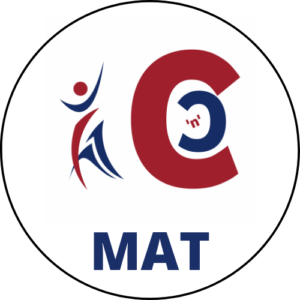
MAT
MAT Syllabus 2022 is officially prescribed by AIMA MAT to test the candidates’ ability in the segments like Analytical, English Comprehension, General Awareness, and Logical Aptitude. The candidates who are appearing for the upcoming exam must be aware of the MAT Exam Syllabus 2022 for all the exam modes. So, the candidates must be well versed with topics covered in MAT Syllabus to ace this exam at once chance.
MAT Exam 2022 Notification for the September session is declared. The candidates aiming at MAT 2022 must note all the important schedules for this exam in September. Stay updated with us to know all the latest information regarding MAT Exam 2022 September Session for all the 3 modes.
MAT 2022 Exam (May Session) is now over for all the 3 modes. AIMA had declared the MAT 2022 result on the official website for this session. The candidates who appeared for MAT Exam 2022 can check the result for all the exam modes. Visit the official website of AIMA and use your login credentials to check MAT Result 2022 for May Session.
MAT Exam Eligibility Criteria | Details |
Educational Qualification | Candidates must be graduated from a recognized University from any stream. |
Candidates with a professional degree such as CA, CS, or ICWA are also eligible to apply for the MAT Exam. | |
The final-year students are eligible to apply for the MAT 2022 Exam. | |
MAT Exam Age Limit | There is no upper age limit as per the official MAT Eligibility Criteria. |
Required Marks | No minimum percentage is specified for taking the exam. It is suggested to check the institute-wise eligibility criteria as different institutes have different specifications. |
In the case of grades or CGPA, the percentage of marks calculation will be based on a procedure certified by the respective Institute in accordance with the participating management institute’s eligibility criteria. | |
Number of Attempts | There is no limitation to appear for the MAT Exam. so, you can apply for this exam as many times as you want if you qualify for the MAT Eligibility Criteria. |
Work Experience | Not Mandatory |
MAT Exam 2022 Syllabus | Details |
Total Number of Questions asked in MAT Syllabus | 200 |
Type of Questions Asked | Multiple Choice Questions (MCQs) |
Number of Answer Choices | 4 |
Sections Covered in MAT Syllabus | 5 Sections Mathematical Skills Data Analysis & Sufficiency Language Comprehension Intelligence and Critical Reasoning Indian and Global Environment |
MAT Syllabus 2022 Marking Scheme | +1 for every correct answer -0.25 for every incorrect answer |
NEET
The NEET syllabus 2022 consists of three major subjects: Physics, Chemistry, and Biology. The NTA has announced that there would be no changes to the NEET curriculum 2022 as compared to the previous year’s syllabus. The NEET 2022 syllabus covers fundamental and advanced topics from Classes 11 and 12 Physics, Chemistry, and Biology. The NEET 2022 syllabus is developed by NTA following careful study of the state board’s 10+2 syllabus.
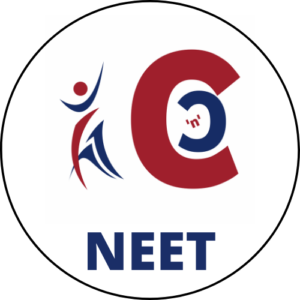
NEET is the only national-level medical entrance exam in India for admission to various undergraduate courses such as MBBS, BDS, AYUSH, Veterinary, and others. It is conducted under the authorisation of the National Testing Agency (NTA). Before NTA took over conducting NEET, the exam was conducted by CBSE. NEET exam will be held on July 17, 2022, in 11 languages including Hindi and English. The exam covers more than 90,000 seats for the courses offered by many universities and colleges in MBBS and BDS all over India.
Age Criteria: The aspirant should have a minimum age limit of 17 years on or before December 31 of the year of admission or concerning students categories.
There is no maximum age limit for candidates who wish to appear for the NEET examination, as there is no information to date. Hence, students more than 25 years of age are provisionally eligible to take the NEET examination with an age relaxation of 5 years concerning their category.
Aggregate Marks: The average marks for General Category must be 50% (Physically Handicapped, PH – 45%) and for OBC/SC/ST – 40% (PH – 40%), respectively.
Note: The Maths score in the board examination is not considered for the NEET exam.
Several subjects: There will be a total of three subjects such as physics, chemistry, and biology. Only the students who had studied these subjects in the Class 12 board exams are eligible to attempt the exam.
Several attempts: There is no maximum attempt for the exam. The candidate can attempt the exam several times without limits.
Year of Passing: The candidates who are yet to appear for their Class 12 board exams in the year 2022 are eligible. Candidates who have appeared for the Class 12 exam and appear for a good score in Class 12 are eligible. Students who appeared for the Class 12 exam the previous year and have taken the improvement exam this year are supposed to mention a better score.
NEET syllabus 2022 comprises three main subjects, namely, Physics, Chemistry, and Biology. NTA has notified that there will be no reductions in the NEET syllabus 2022 compared to the previous year’s syllabus. Fundamental and advanced topics from Classes 11 and 12 Physics, Chemistry, and Biology are covered in the NEET 2022 syllabus. NTA designs the syllabus for NEET after a thorough consideration of the 10+2 syllabus of the state boards.
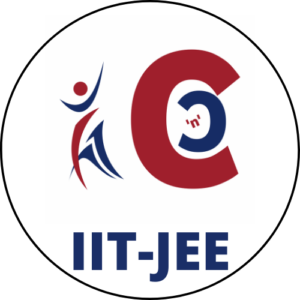
IIT JEE
The National Testing Agency (NTA) will conduct the JEE Main 2023 exam. Joint Entrance Examination 2023 will be conducted four times in February/ March/ April and May. The authorities will release the application form of JEE Main 2023 at jeemain.nta.nic.in tentatively in November 2022.
JEE Main 2023 Exam Dates
Events | JEE Main Dates 2023(Tentative) |
Release of official JEE Main notification | November 2022 |
Availability of JEE Main 2023 brochure | November 2022 |
Commencement of JEE Main registration 2023 | February session - November 2022 March session - Last week of February 2023 April session - Last week of March 2023 May session - Last week of April 2023 |
JEE Main application form last date 2023 | February session - December 2022 March session - March 2023 April session - April 2023 May session - May 2023 |
JEE Main 2023 application correction | February session - January 2023 March session - March 2023 April session - April 2023 May session - May 2023 |
Admit Card Release Date | February session - February 2023 March session - March 2023 April session - April 2023 May session - May 2023 |
JEE Main 2023 exam date | February session - February 2023 March session - March 2023 April session - April 2023 May session - May 2023 |
JEE Main result date | February session - February 2023 March session - April 2023 April session - May 2023 May session - June 2023 |
JEE Main Eligibility Criteria 2023
Particulars | Details |
Age limit | There is no age limit. |
Qualifying Examination | Candidates must have passed 10+2 or equivalent examinations from a recognised board. |
Year of Passing the Qualifying Examination | Candidates who have passed 10+2 or equivalent examination in 2021, 2022 or are appearing for it in 2021 will only be eligible for JEE Main 2023. |
Number of Subjects in the Qualifying Examination | The candidates should have qualified in 5 subjects:
|
Admission Criteria for IITs, NITs, IIITs and CFTIs | For B.Tech/B.Arch/B.Plan admissions in IIITs, NITs and CFITs Candidates should have secured minimum 75% marks (65% for SC/ST category candidates) or should fall under the top 20 percentile of their respective boards. For B.Arch admission in institutes other than IIITs, NITs and CFITs Candidates should have scored 50% aggregate marks in Physics, Chemistry and Mathematics in 10+2 or equivalent. |
Although a strategy to crack JEE Main 2023 will vary as per candidates, a few points must be considered while preparing for the exam. Candidates can check some preparation tips for JEE Main 2023 here in order to prepare well for the exam.
Understand the Syllabus & Exam Pattern - Candidates should understand the exam pattern & syllabus of JEE Main 2023 completely. The knowledge of exam pattern and syllabus will make the students aware of what is to be studied for the exam.
Study Plan - Next candidates should make a proper time table to complete the syllabus of each section in time. Candidates should divide their available time for preparation in such a way that all the sections are covered before the exam.
Start With NCERT Books - Candidates should complete their NCERT books of Class 11th and 12th first and then refer to other books.
Speed, Time Management & Accuracy - Candidates must work on their speed and time management in order to ace JEE Main 2023 exam. Candidates should attempt JEE Main questions using timers, practice sample papers, etc. in order to increase their speed and time management. Accuracy should also be maintained as wrong answers will result in negative marking. Thus, candidates must be careful while answering questions during the online test.
Revision - One of the most important elements of a study plan is revision, so a candidate must keep time for revision in his/her study plan.
Mock Tests - Candidates should practice more and more JEE Main mock tests to have an overview of the actual examination. JEE Main 2023 mock tests are based on the actual pattern of the exam.
UPSC
UPSC Syllabus 2022 is released by the Union Public Service Commission (UPSC) on its official website. The IAS Syllabus is divided into prelims and mains. The candidates preparing for the UPSC exam must be well versed with the syllabus before they begin their preparation. UPSC Syllabus is considered to be vast and difficult to cover, therefore the aspirants must note down the syllabus to plan their preparation in a strategic manner. In this article, we have categorized the complete UPSC Syllabus for Prelims, Mains, and Optional subjects for your convenience.
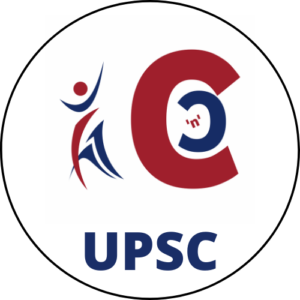
UPSC syllabus for 2022 saw no changes and is similar to the previous year's syllabus. Candidates can download the UPSC syllabus PDF in English and Hindi directly from the links mentioned below. Geography, Sociology, Political Science, Public Administration, History, Law, and Philosophy are some of the popular UPSC subjects that you can opt for. If you have decided on your optional, download the UPSC syllabus for prelims, mains, GS subjects, and optional paper.
| IAS Exam Age Limit | 21 to 32 years |
| Age Relaxation | As per category (mentioned below) |
| Educational Qualification for IAS | Graduation |
| Nationality | Indian citizens only |
IAS syllabus is divided as per the selection process and stages - prelims and mains. The UPSC Prelims exam is the first stage of the exam and is qualifying in nature. Candidates who clear the prelims exam appear for the UPSC Mains exam which is descriptive in nature.
The applicants can download the UPSC Syllabus for GS and optional subjects separately. After the mains exam, selected candidates appear for the interview stage. To ensure that you are fully prepared, you must go through the complete UPSC syllabus and then begin your preparation. It is important to note that UPSC releases the IAS syllabus for mains separately for all the papers
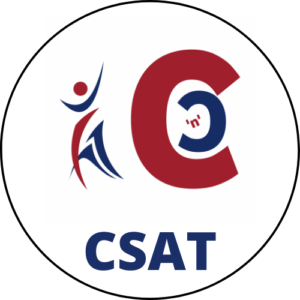
CSAT
- CSAT stands for Civil Services Aptitude Test. It is a part of the UPSC Prelims (Civil Services Exam – Preliminary). However, the Union Public Service Commission (UPSC) refers to the exam as General Studies (GS) Paper – II.
- Hence, in the context of UPSC Prelims, GS Paper II refers to the CSAT while in context of UPSC Mains, GS Paper II is the Polity (etc.) paper.
- Candidates are advised to understand the complete UPSC CSE Syllabus and the syllabus of CSAT in UPSC Prelims to avoid confusion.
The CSAT exam pattern for UPSC:
- Number of questions: 80 Objective-Type (MCQ) questions
- Negative Marking: Yes (1/3rd of the maximum marks for the question)
- Time: 2 hours
- Type of Exam: Offline exam
- Date of CSAT exam: 10th October 2021
- Language of CSAT exam paper: English/Hindi
- Maximum Marks: 200
- CSAT qualifying marks: 66 marks (33% qualifying criteria)
The topics included in the CSAT syllabus are given below in brief:
- Reading Comprehension
- Interpersonal and Communication Skills
- Logical and Analytical Reasoning
- Decision Making
- Basic numeracy
- General Mental Ability
GATE
The Graduate Aptitude Test in Engineering (GATE) is an All-India examination administered and conducted in eight zones across the country by the GATE Committee comprising of Faculty members from IISc, Bangalore and other seven IIT’s on behalf of the National Coordinating Board, Department of Education, Ministry of Human Resources Development. The GATE score/rank is used for admissions to Post Graduate Programmes (ME, M.Tech, MS, Direct Ph.D.) in institutes like IITs and IISc etc with financial assistance offered by MHRD. PSUs too use the GATE scores for recruiting candidates for various prestigious jobs with attractive remuneration.
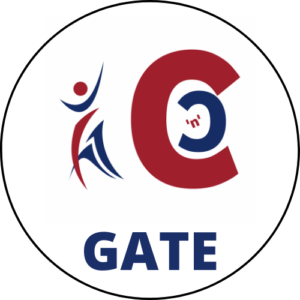
GATE exam 2022 was conducted by the Indian Institute of Technology (IIT) Kharagpur at the national level in India. Every year, the GATE exam is administered by either IISc Bangalore, IIT Bombay, IIT Delhi, IIT Kanpur, IIT Guwahati, IIT Kharagpur, IIT Madras, and IIT Roorkee on a rotational basis. GATE exam in full form is the Graduate Aptitude Test in Engineering.
The GATE exam has two more new papers: Marine Engineering & Naval Architecture and Geomatics Engineering. Hence, there will be 29 papers for the GATE 2023 examination instead of 27 papers (old) available as options to get admission to IITs, NITs, and other Centrally Funded Technical Institutions (CFTIs) in India.
The eligibility to appear for GATE exam is as follows:
· Bachelor's degree holders in Engineering/ Technology/ Architecture (4 years after 10+2) and those who are pursuing the final year of such program.
· Bachelor's degree holders in Engineering/ Technology/ Architecture (Post-B.Sc./Post-Diploma) and those who are in the final year of such programs.
· Master's degree holders in any branch of Science/ Mathematics/ Statistics/ Computer Applications or equivalent and those who are in the final year of such programs.
· Candidates in the second or higher year of the Four-year Integrated Master's degree programme (Post-B.Sc.) in Engineering/Technology.
Particulars | Description |
GATE Exam Duration | 3 hours (180 minutes) |
Number of Subjects/Papers | 29 (Increased from 27) |
Sections | General Aptitude (GA) and Candidate's Selected Subject |
Number of Questions | 65 questions (General Aptitude: 10 Questions Core Subjects: 55 Questions) |
Distribution of Marks in all Papers Except for papers AR, CY, EY, GG, MA, PH, XH and XL | General Aptitude(15 Marks) + Engineering Mathematics(13 Marks) + Subject Questions(72 Marks) = |
Questions Type | Multiple Choice Questions (MCQ), Multiple Select Questions (MSQ), Numerical Answer Type (NAT) Questions |
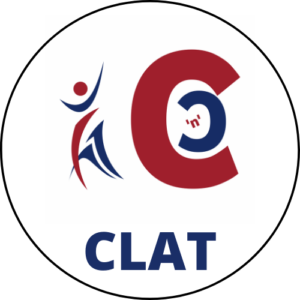
CLAT
Common Law Admission Test (CLAT) is conducted as per a Memorandum of Understanding (MoU) for the convenience of the students seeking admission to various National Law Universities in the country. An entrance test is conducted to provide a list of candidates on the basis of ‘merit-cum- preference’ to each University for admission to their Under-Graduate (UG)/Post-Graduate (PG) programmes, as per the eligibility, reservation and other criteria laid down under the respective Statutes of the participating Universities.
CLAT Counselling 2022 2nd List is uploaded on the official website. The candidates must visit the official website of CLAT Exam 2022 to check their names. CLAT 2022 Result was released by NLUs Consortium on 24 June 2022. Additionally, the Final CLAT 2022 Answer Key was declared on 23 June 2022.
The Common Law Admission Test (CLAT) is a national level Law entrance exam conducted by the Consortium of NLUs for both UG & PG Courses. CLAT Exam Analysis 2022 is now live. The candidates who are appearing for the upcoming CLAT 2023 must check this analysis to enhance their preparation level. Read on to know more about CLAT Exam, including analysis, answer key, results, cut-off, question paper, answer keys, and more.
CLAT UG Eligibility 2022
The CLAT Eligibility Criteria for UG (undergraduate) course is divided into two parts as follows.
- Candidates must have secured 45% marks in aggregate or its equivalent in their 10+2 or an equivalent examination.
- Candidates belonging to the reserved categories must have secured 40% aggregate or its equivalent.
☛ Go through the details for CLAT registration 2022.
CLAT PG Eligibility 2022
The CLAT Eligibility for the PG Law Programme includes details about educational qualifications, marks obtained in graduation, and more.
- The candidates must complete an LLB Programmes with a minimum of 50% marks in aggregate (45% for Reserve Category).
CLAT is a law entrance exam consisting of both UG and PG courses. The selection in CLAT will allow a student to study in National Law Universities (NLUs). As Law is a dynamic subject, hence it cannot be studied in isolation without any association with other subjects like political science, economics, etc. Getting into an NLU will provide students the best environment and platform to study this dynamic field.
AILET
AILET Syllabus is released by National Law University for the upcoming exam on the official website. Candidates preparing for the upcoming exam must have complete knowledge of the AILET 2022 Syllabus so that they can prepare accordingly. The AILET Exam Syllabus includes three major sections which are English Language, Current Affairs & GK, and Logical Reasoning.
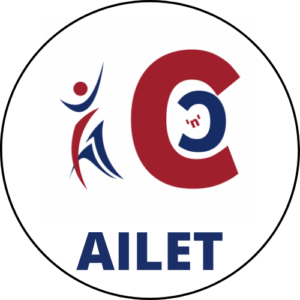
AILET Counselling process 2022 for B.A. L.L.B. programme started on July 1, 2022. Those who successfully registered for the counseling and paid the fee till 11.00 A.M. on July 4, 2022, have been considered to be included in the Provisional Merit List and Waiting List for admission to B.A.LL.B.(Hons.) programme. NLU Delhi has released the First Provisional Merit List of Selected Candidates (category-wise) for admission to B.A.LL.B.(Hons.) programme on 6 July 2022. Those who are listed on the First Provisional Merit List must pay their balance fee before 8th July 2022.
Note the below table to get some important information about AILET Eligibility Criteria.
Components | Details |
Declared by | NLUD (National Law University, Delhi) |
AILET Eligibility Includes | Educational Qualification, AILET Age Limit, Reservation Policy, and more |
AILET Age Limit | Not Applicable |
Educational Requirements | 50% marks in the 10+2 Exam |
How to Prepare for AILET is the most common query that every candidate has and wants to know. It is recommended that the candidates must start their AILET 2022 Preparation as early as possible. Early preparation will help them to ensure that they are fully prepared for the upcoming exam. However, hard work is the key to get success in AILET Exam.
Starting the AILET Preparation in advance will give you an edge over the rest. AILET Preparation Tips include some of the best preparation ways for candidates who wish to pursue a Law from NLUD. Here, you will get all the details regarding How to Study for AILET along with section-wise preparation tips and strategy.
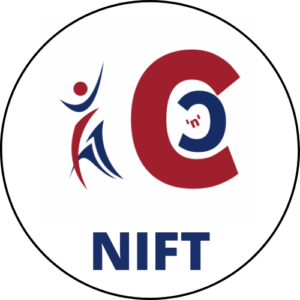
NIFT
What is NIFT? NIFT or National Institute of Fashion Technology is one of the prestigious institutes in the field of design in India. NIFT conducts entrance examination once every year for admission into undergraduate (Bachelor in Design, Bachelor of Fashion Technology) & postgraduate courses (Master of Fashion Technology, Master in Design) in India.
The aspirants can check important highlights on the NIFT 2023 Entrance examination which is given below:
| Particulars | Details |
|---|---|
| Exam Name | National Institute of Fashion Technology Entrance Examination |
| Name of the Conducting Authority | National Institute of Fashion Technology |
| Exam Level | National |
| Mode of Application | Online |
| Mode of Exam | Online Proctored Examination |
| Exam Frequency | Annually |
| Exam Duration |
|
| Number of Questions |
|
| Question Type | MCQ Question in the GAT |
| Application Fees | INR 2000/- for Unreserved/ Other Backward Class INR 1,000 for Scheduled Caste and Scheduled Tribe |
| Total Seats Offered | 4517 (Expected) |
| Applications Per Year | Approximately 40,000 |
| Number of Exam Centre | 32 cities. |
| Official Website | https://www.nift.ac.in |
NIFT has set some basic eligibility standards that a candidate needs to clear before filling the Application Form. These standards are categorised as listed below:
On the basis of Academic Qualification
If a candidate is in 12th/final year of college/final year of diploma does not submit the examination result at the time of admission or counselling, his/her admission depends on the following conditions: -
- Candidate below 18 years of age has to submit an affidavit on non-judicial stamp paper of Rs.10 in the prescribed Proforma duly signed by the parent/guardian. Submission of the false document is a punishable offence.
- Candidates have to submit their qualifying degree to the campus director or joint director of the allotted college on or before a date to be announced soon.
- In case a candidate fails to submit his/her qualifying degree at the time of admission, his/her admission will be considered null and void.
- If a candidate’s result has not been declared at the time of admission and he/she is seeking provisional admission, in that case he/she shall have to provide relevant proof of having cleared the examination.
- Candidates who are seeking provisional admission will have to bring the date sheet/admit card/Principal’s certificate as proof of having taken the exam. Same thing applies to the candidates who have taken the compartment/supplementary exam in the 12thstandard or final year of graduation/diploma.
- Candidates who are seeking provisional admission will only be considered for admission if their result has not been declared by the institution or university. In any other case, their admission will liable to be cancelled under provisional admission category.
On the basis of Age
- The maximum age allowed for general category candidates as of 1st August in the year of examination should be less than 24 years of age.
- There will be 5 years’ relaxation in age limit for SC/ST or Differently Abled Person (PHP) candidates.
- There is no age limit for candidates for applying for master degree programs.
NIFT 2022 Course Wise Eligibility
All the candidates interested to get into a particular course can go through the following article to know if they are eligible or not. To have a clear picture about the criteria followed for each course will help them save their time. Courses Offered by NIFT are as follows:-
Undergraduate Programmes
- B.Des. Programme
- B.F.Tech Programme
Postgraduate Programmes
- M.Des. Programme
- M.F.M. Programme
- M.F.Tech Programme
Creative Ability Test is conducted in NIFT 2022 for UG as well as PG programs. This section tests the design ability, intuitive ability and observation skills of the candidates in concept development. Candidates must practice the innovative uses of color and illustration skills in this section. Some of the important preparation tips for this section are:
- Develop preparation strategy- The most important thing for candidates is to develop a planned approach. You must set goals and list topics that are to cover in order to prepare for the exam. Analyze your strengths and weakness and allot time to the topics in NIFT according to the topics that will require more time.
- Time Management- Time Management is an essential aspect of the exam as a lot of times candidates are unable to attempt the questions. Consistent preparation of the topics will also improve your speed and thus enable you to attempt the questions in the exam.
IPMAT
Each applicant must be familiar with the IPMAT Syllabus 2023 before beginning their preparations for the IPMAT 2022 exam. IIM Rohtak and IIM Indore have posted the IPMAT Syllabus 2022 on their official websites. A very important step in being exam-eligible is having a thorough comprehension of the IPMAT syllabus. Since both IIM Rohtak and IIM Indore have separate IPMAT syllabuses, candidates should refer to those. The IIM syllabus is covered the verbal ability, mathematical aptitude, and logical reasoning aspects of the exams. The IPMAT score obtained through IIM Indore is accepted by both Nirma University and IIM Indore. the IPMAT is being conducted at IIM Rohtak. IPMAT Indore and IPMAT Rohtak have different paper patterns.
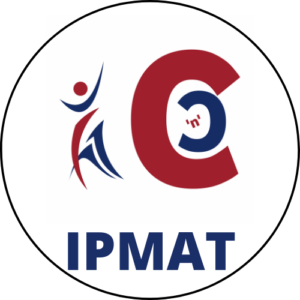
The IIM Indore has released the IPMAT 2022 Exam Date on the official website. Candidates who are going to appear for the IPMAT exam must check the IPMAT Exam Date for making a good preparation strategy. The Integrated Program in Management Aptitude Test is a national-level, aptitude-based admission test for management programs. The mode of the examination is online. Candidates can check the IPMAT notification on the official website.
IIM Rohtak conducted the IPMAT Rohtak 2022 on the 4th Sunday of June 2022. Earlier, the Exam Date, application fee, eligibility, and more were announced through the notification. Now candidates can check the IIM Indore notification as it is released.
- Candidates must have passed class 12th/HSC or equivalent examination from any recognized school in 2021, 2022 or 2023
- General/NC-OBC/EWS category candidates must have obtained a minimum of 60% marks in the 10th standard and 12th standard
- SC/ST/PwD category candidates are given a relaxation of 5% and must have scored a minimum of 55% in the 10th and 12th standards.
- Candidates who have completed their 10th and/or 12th standard from foreign boards like IGCSE (International General Certificate for Secondary Education) and IB (International Baccalaureate) are also eligible to apply
- The percentage of the candidate for classes 10th and 12th would be evaluated based on the aggregate marks of all the subjects that would appear on the mark sheet, irrespective of the Board’s Regulation.
- In case, the candidate has grades instead of marks on the mark sheet, then the conversion of grades to marks would be done based on the procedure certified by the Board/ Competent Authority
- Candidates whose year of examination of passing 12th is 2022-23 can also apply for this test subject to the eligibility criteria mentioned above.
- If selected, such candidates will be offered a program provisionally. At the time of registration, candidates have to appear before the authority with a standard 10th and 12th mark sheet with the required percentage as mentioned above. They should also have a migration certificate if failing to do so, their provisional admission will be canceled.
- IIM-Indore reserves the right to decide the eligibility conditions in terms of equivalence, percentage marks, and the recognition of the qualifying examination, intake, etc.
So
Useful tips for IPMAT Preparation 2022 for each section are provided to help all the candidates to crack the IPMAT exam. To aid you in your journey to secure your admission through the IPMAT Entrance Test in the year 2022, BYJU's Exam Prep experts have curated IPMAT Preparation Strategy for IIM Rohtak and IIM Indore to provide you with the Strategy to prepare for the upcoming IPMAT 2022. If you follow the correct strategy to the end you will surely crack the entrance exam easily.
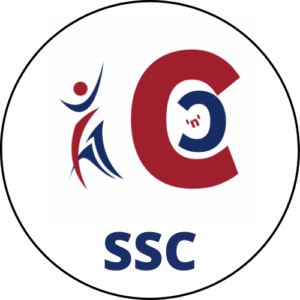
SSC
Staff Selection Commission (SSC) is a Government organization that recruits staff for various posts in the various Ministries and Departments of the Government of India and in Subordinate Offices.
SSC broadly conducts two types of examinations.
· SSC CGL exam
· SSC Combined Matric Level Examination i.e. SSC 10+2
SSC CGL 2022 is a national-level competitive exam to recruit graduates for various Group 'B' and 'C' posts in the Central Government departments. There are multiple job profiles available in this recruitment exam such as Assistant Audit Officer, Assistant Section Officer, Sub-Inspector, etc. This year, the commission released the SSC CGL 2022 Notification PDF on 23 December 2021 and kept the application window open till 23 January 2022. All those who are planning to apply for this exam in the near future must keep this post bookmarked to stay updated on all the latest updates on the SSC CGL notification.
To apply for the SSC Combined Graduate Level exam, it is important to understand the SSC CGL Eligibility Criteria 2022 such as age limit, educational qualification, the percentage required, etc. Please note that the SSC CGL exam date will be in April 2022. Candidates must be having a lot of doubts such as 'What is the basic qualification required to be eligible for SSC CGL exam?' etc. We have listed below the SSC CGL eligibility criteria in detail for your understanding.
Here are some important points regarding SSC CGL eligibility 2022 which are listed below:
- There is no minimum percentage requirement in SSC CGL 2022 exam, candidates with simple graduation passing certificates are eligible to apply
- Candidates who are in their final year of graduation are also eligible for SSC CGL provided they must produce the passing certificate and mark sheet within the specified date mentioned by the SSC board
- Candidates must also note that a degree obtained through open university or distance education must be recognized by a Distance Education Bureau (DEB). DEB recognized institutes include Indira Gandhi National Open University (IGNOU), Manipal Academy of Higher Education, Manipal (Deemed to be University), Bharati Vidyapeeth, Pune (Deemed to be University), etc. Check the complete list of DEB recognized institutes here
- Candidates living outside India are also eligible to apply for SSC CGL 2022 exam provided they have Indian citizenship
- The minimum and maximum age limits for General category candidates are 18 years and 32 years, respectively. Reserved category candidates also get an age relaxation, the details of which are mentioned in the article below.
SSC CGL Vacancy 2022 has been released on 04 July 2022. The Staff Selection Commission announced the SSC CGL vacancy on its website and here we have provided the direct link to check it. The commission has announced a total of 7686 vacancies this year. In comparison to past years, the number of openings has increased. To gain an overview of the vacancy trend, look at the yearly comparison of SSC CGL vacancies. Below we have provided detailed group-wise, post-wise, and category-wise SSC CGL vacancies along with vacancy trends over the last 5 years.
Bank PO
The Banking sector in India has always been one of the most preferred destinations for employment. In this decade, this sector has emerged as a sunrise sector in the Indian economy.
Now, banks have diversified their activities and getting into new products and services that include opportunities in credit cards, consumer finance, wealth management, life and general insurance, investment banking, mutual funds, pension fund regulation, stock broking services, custodian services and private equity etc. Further, most of the leading Indian banks are going global, setting up offices in foreign countries themselves or through their subsidiaries.

Career as Bank PO / Clerk/ SO
Indian banks conduct exams for the following cadres:
1. Bank Probationary Officers (PO)
2. Bank Clerks or Probationary Clerks
3. Bank Specialist Officers (SO)
Career as a Bank Probationary Officer (PO):
A Probationary Officer’s post is the entry to the most coveted managerial positions in the banking industry. A P.O. starts as a trainee officer in the Junior Management Grade Service (JMGS) of the bank and can rise to the highest grades of the bank in his career becoming a General Manager, a Director or even the Chairman of the Bank
Needless to say, a Bank PO’s position is seen with tremendous respect in the society as it secures a life long opportunity to grow, prosper and serve the society in a senior and responsible position in the Banking industry. And, therefore, every Bank P.O. Exam attracts lakhs of talented graduates, post-graduates and professionals to compete for a few hundred or thousand vacancies notified by the banks.
Career as a Bank Clerk:
A bank clerk enjoys job security, challenging work environment, opportunity to strengthen customer relation skills, using best available technology and working to learn under worthy senior officers. He is trained on the job and at the Bank’s Staff Training Colleges and given opportunity through departmental exams of the bank or otherwise to rise to the higher levels of management in the bank. He gets the opportunity of life-long learning in Banking, Finance, Management and other areas of his choice through various national level institutions set up for Bankers’ education. One need not be surprised to find many senior staffs in most of the branches of various banks as well as at the Regional, Zonal and Head Offices of the banks who had joined the bank in the clerical cadre.
Career as a Bank Specialist Officer (SO):
Banks also conduct recruitment exams for Specialist Officers cadre to man their finance, legal, human resources, marketing, systems and other departments which are open to candidates having requisite professional qualifications in engineering, chartered accountancy, law or a degree in MBA, MCA,.... etc.
Major Recruiters
Public Sector Banks form the major recruiter group for candidates aspiring for bank jobs. They are:
1. State Bank of India
2. Nationalised Banks (Total: 19 Banks) which include Allahabad Bank, Andhra Bank, Bank of Baroda, Bank of India, Bank of Maharashtra, Canara Bank, Central Bank of India, Corporation Bank, Dena Bank, Indian Bank, Indian Overseas Bank, Oriental Bank of Commerce, Punjab & Sind Bank, Punjab National Bank, Syndicate Bank, UCO Bank, United Bank of India, Union Bank of India and Vijaya Bank.
3. Other Public Sector Bank (Total: 1 Bank) i.e. IDBI Bank Limited.
4. Private Sector Banks: The major recruiters in the private sector include the ICICI Bank, HDFC Bank, Axis Bank, Federal Bank, Centurion Bank of Punjab, Indusind Bank, Kotak Mahindra Bank, Yes Bank, ING Vysya Bank, Bank of Rajasthan, Karur Vysya Bank, Karnataka Bank, Jammu & Kashmir Bank, South Indian Bank, Bharat Overseas Bank, etc.
5. Co-operative Banks: All major National and State Co-operative Banks and Scheduled Urban Co-operative Banks conduct their own exams to recruit Officers.
6. RRBs(Regional Rural Banks): Regional rural banks in India have penetrated every corner of the country and extended a helping hand in the growth process of the country. There are total of 82 banks across the country.
The expansion of the banking sector and its convergence with the other financial sectors such as insurance, NBFCs and Capital markets, retirement of the existing employees and financial inclusion have created more number of opportunities in the banking sector.
Infrastructure, Risk Management, Banking and Financial Services, Management Information Systems and Customer Relations Management are a few areas where specialization is expected.
Useful Links
Subscribe Now
Don’t miss our future updates! Get Subscribed Today!
©2022. Horn and claw. All Rights Reserved.

